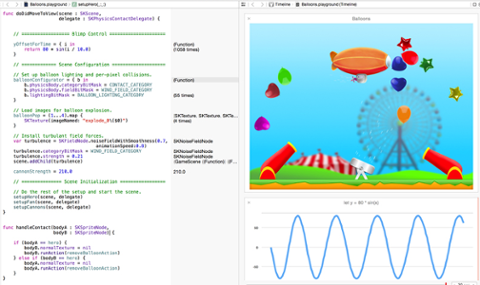Apple Makes Swift Open-Source
As widely expected, Apple has made Swift open-source. Those interested in playing around with the language can visit Swift.org, which features source code and documentation (as well as slow loading times, at least at the outset). There’s also a GitHub repository, for those who prefer to access the code that way. Apple’s GitHub pages offer some interesting details on the next iteration of Swift, due next fall. Swift 3.0 will attempt to further stabilize the language’s standard library and binary interface (ABI); according to the documentation, it will contain “source-breaking changes from Swift 2.x where necessary to support these goals.” In addition to stable ABI and resilience, other features of Swift 3.0 will include portability, type system cleanup and documentation, complete generics, and attempt to focus and refine the language, and more API design guidelines. However, other community-desired features such as concurrency, C++ interoperability, and full-source compatibility are considered out-of-scope for version 3.0. Before Apple can reach 3.0, it will release a minor version, 2.2, sometime in spring 2016. That release will focus on bug fixes, better quality-of-implementation (such as warnings and diagnostics), and improved performance and compile times. “As a step toward Swift 3.0, it will introduce warnings about upcoming source-incompatible changes in Swift 3.0 so that users can begin migrating their code sooner,” the GitHub page added. According to recent data from TIOBE Software (which maintains an updated index of popular programming languages), Swift is already cannibalizing the market-share of its predecessor, Objective-C, which Apple developers relied upon for years to build iOS and Mac OS X apps. In TIOBE’s estimation, Swift has climbed to fifteenth among programming languages, even as Objective-C dropped from third place to fourteenth over the past 12 months. That’s good for Apple, which wants Swift to replace Objective-C entirely as its developers’ programming language of choice. Among other features designed to make app creators’ lives easier, Swift 2.0 features an error-handling model that works seamlessly with Apple SDKs, along with some other new tweaks.



